Who's responsible for sorting out a problem?
Responsibility for fixing issues depends on what the problem is and where it's located, but don't worry, have a read of the info below and if you're still unsure just give us a ring.
River flooding
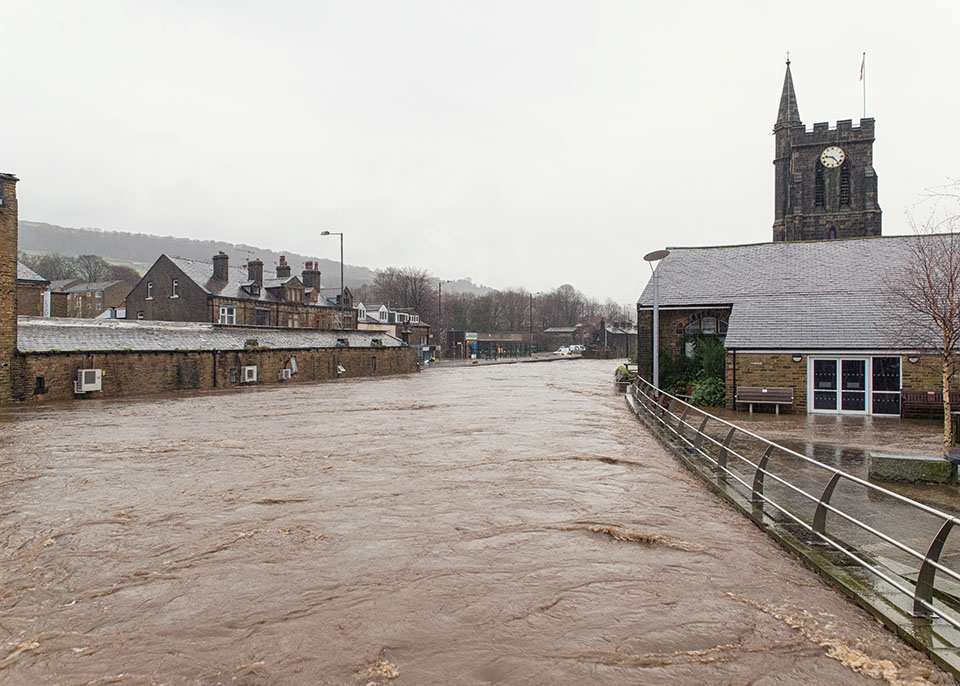
The Environment Agency is responsible for river flooding and will be able to help you if you're at risk.
Highway gullies
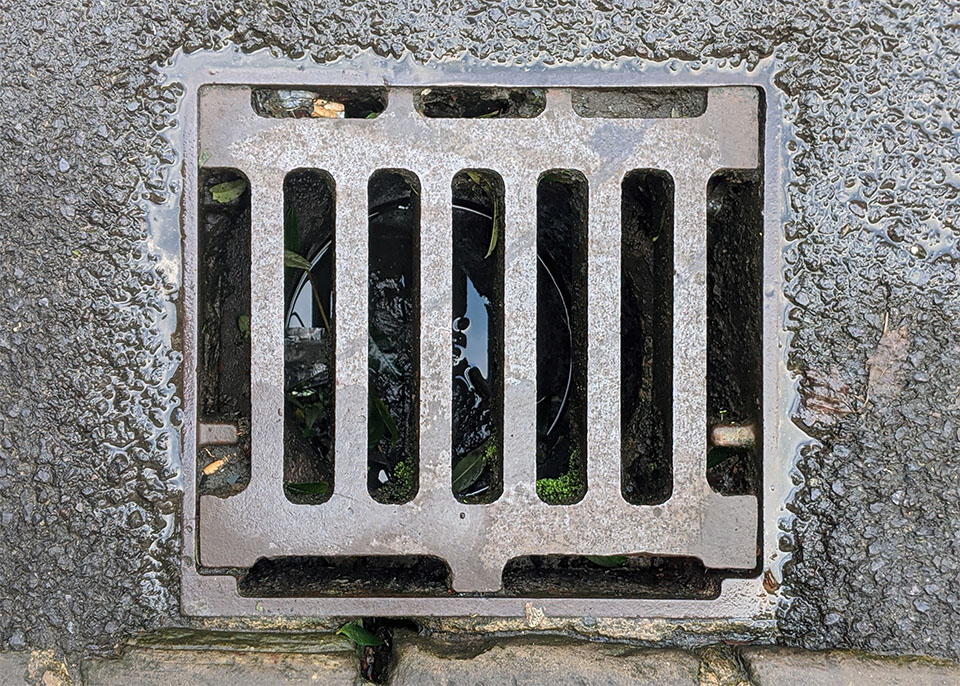
Your local council is responsible for problems with highways gullies. These are the ones that are found by the side of the road. If you notice a blocked gully, give your local council a ring to let them know.
Groundwater
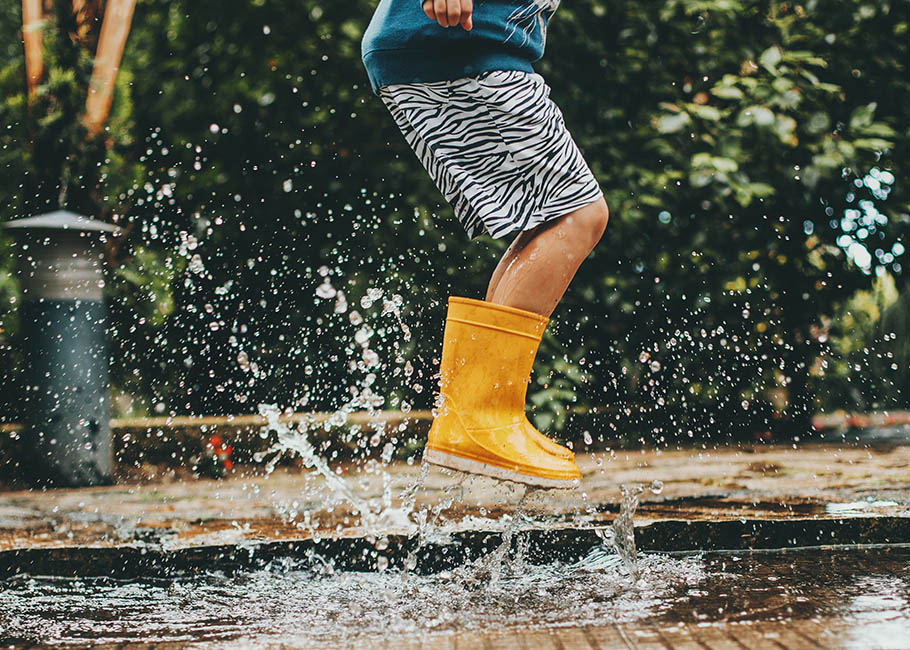
It's your responsibility to sort out groundwater problems on your property.
If you're affected by groundwater issues, you might water to look into installing a sump pump.
Drainage pipes
If there's a blockage in a drainage pipe or sewer, responsibility for fixing it depends on where the problem is.
As a homeowner, you're responsible for:
- all the pipes inside the property. These include toilets, sink drains and any outdoor guttering or pipes attached to the property.
- the section of pipe that goes into the ground, either directly or into a gully close to the property, until it reaches a shared drainage pipe or public sewer.
- drains shared between more than one property if your home was built after 2011, unless they've been adopted by Yorkshire Water.
At Yorkshire Water, we're responsible for:
- drains shared between more than one property which flow into a public sewer, if your home was built before 2011.
- drains outside of the property boundary which flow into a public sewer.
- public sewers.
Detached homes
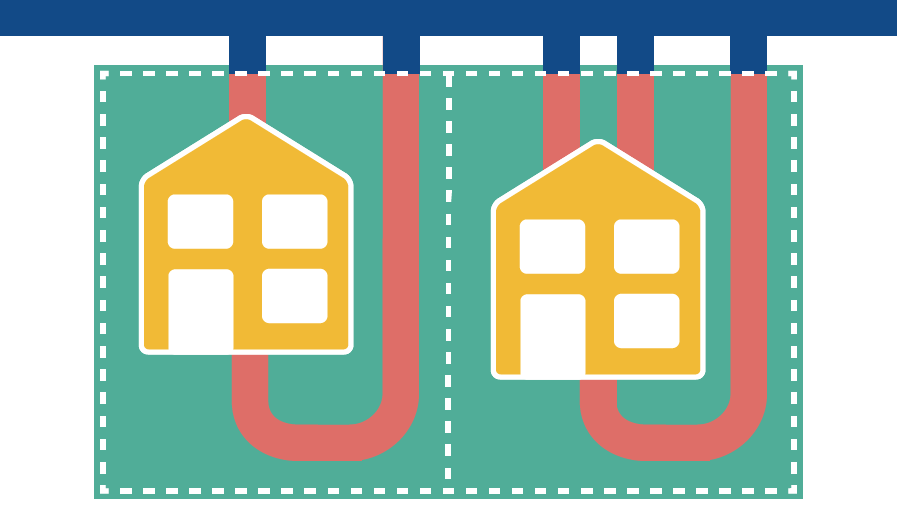
Semi-detached homes
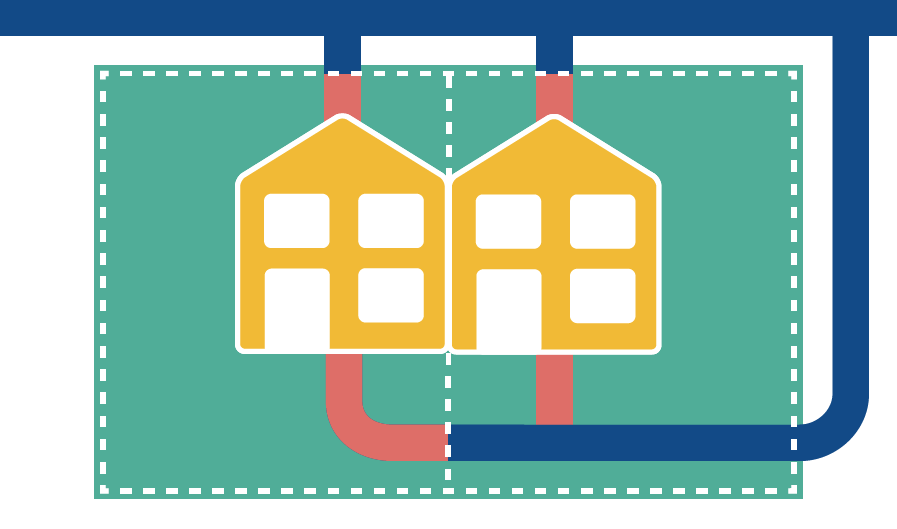
Flats or apartments
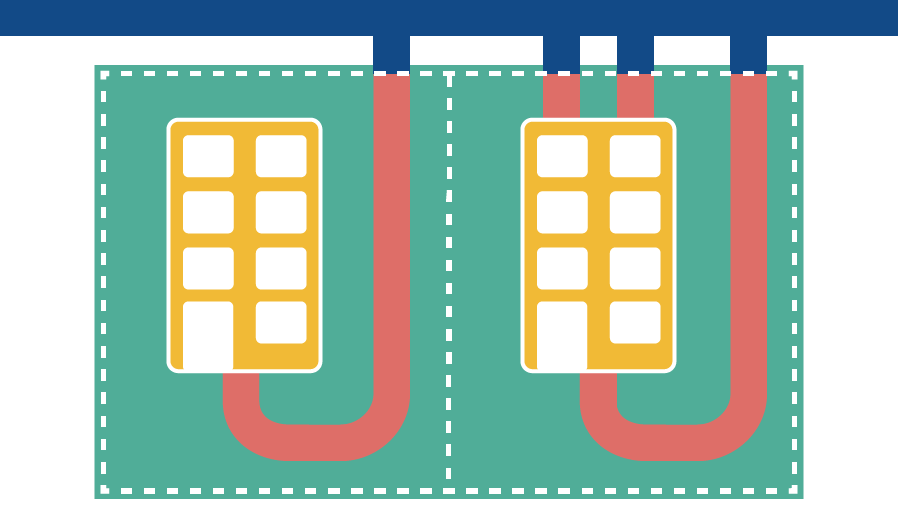
Terraced homes
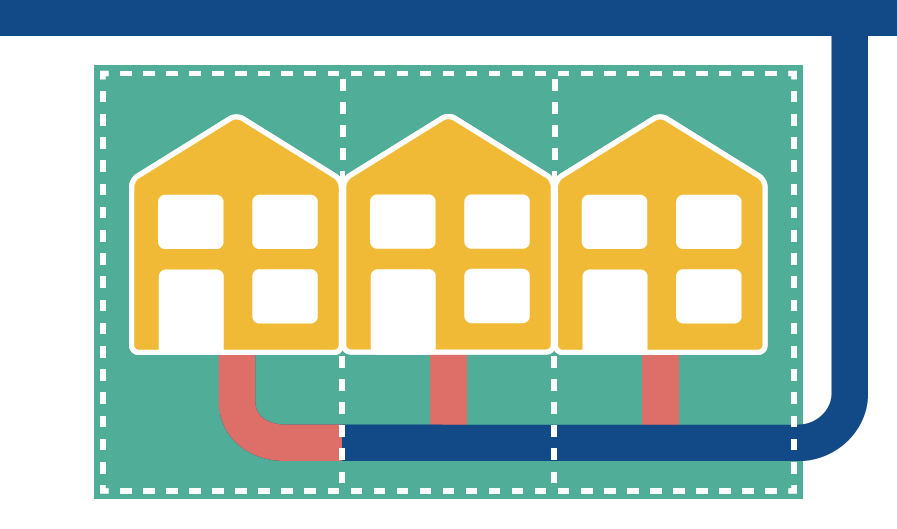
Homeowner's responsibility
![]()
Yorkshire Water's responsibility
![]()
Property boundary
![]()
How do I know if it's my pipe that's blocked?
There are a couple of quick checks you can do to see if the problem is in our pipes or yours.
Check if your neighbours have the same problem
If your neighbours are having similar problems, the blockage is probably in our sewers or pipes and it's our responsibility to fix it.
If your neighbours don’t have any problems, it’s more likely that the blockage is in the pipes on your property and it's your responsibility to fix it.
Check if other rooms are affected
If the problem is only affecting one room in your home and the rest are flowing fine, then the blockage is in the pipes on your property and it's your responsibility to fix it.
Fixing a problem on your property
If you live in a rented property, you should contact your landlord and tell them about the problem.
If you own the property, contact your insurance company before you start looking for a drainage contractor. They will be able to give you help and advice about making a claim. If you don’t notify your insurance company, it could affect any future insurance claim. We have no liability for blockages which are beyond our control so your insurance company are best placed to help you regarding loss and damage.
If your insurance doesn't cover the problem you'll need to contact a plumber.
Search WaterSafe's list of qualified plumbers.
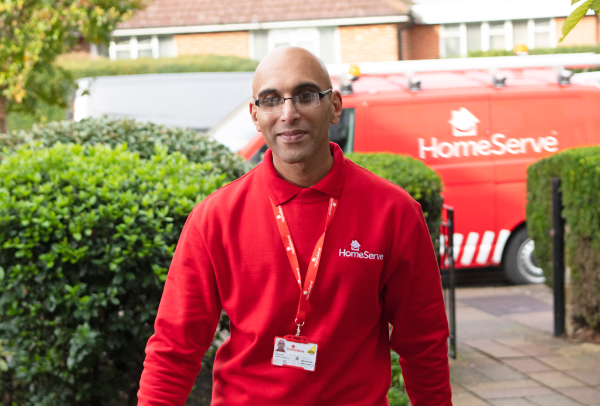
Protect your property with HomeServe
HomeServe offer a range of policies, and if things go wrong, an approved engineer will be there to get things sorted.
If it's our responsibility
1. Report it
If you've checked the other rooms in your house and your neighbours are having similar problems then the problem is probably our responsibility.
If the blockage is outside your property, you can check to see if someone has already reported it to us, on our incidents page.
If we don’t already know about it, please call and let us know as soon as possible so we can respond quickly.
2. We’ll take a look
If there's sewage inside your home or property, we’ll try to get to you the same day. You’ll need to be in when we visit so if you can’t be there, we’ll make you an appointment for a later date. We can text you on the day to let you know the technician is on their way. When they arrive, the technician will figure out what’s causing the problem and clean up the mess if the blockage is our responsibility. Once they know what the problem is, the technician will tell you what you need to do and explain what happens next.
If there's sewage outside your property, we'll be there as soon as we can.
If the cause is found to be our responsibility we will clean up the area, disinfecting and collecting any sewage debris and litter.
Blockages on your property
If our technician finds the blockage is your responsibility, we won't be able to fix it and you'll have to contact a plumber.
3. Next steps
If it's a problem with our pipework, we’ll take responsibility and sort it.
Every situation is different, so it’s difficult to know how long the problem will take to fix. If it’s a simple problem, we may be able to fix it on our first visit. Fixing big problems can be complicated and may take a while, so we may need to come back to do further work. If we need access to your property again, we’ll get in touch to arrange another appointment.
Always stay safe
Sewage leaks can be very dangerous so it's important you stay safe.
- Do not walk through flood waters if you can avoid it - they may contain sewage and other dangers. You should also keep children and pets away from the affected area.
- Wash your hands and disinfect footwear after any contact with the sewage.
- Turn off electricity and gas points if sewage is in danger of reaching them.
- Take extra care around flooded areas - manhole covers may have been moved by the water. You might not be able to see this, and you could fall and injure yourself.
- Never attempt to unblock a sewer yourself – this would put you at risk and could make the situation worse. You should wait for a professional to come and deal with the problem.
- Protect cuts and grazes with waterproof dressings and wear rubber gloves to protect yourself while cleaning up.
- Don’t eat any fruit or vegetables grown in the garden if there has been a sewage leak, and don’t plant any new ones for at least six months.
Questions about sewage flooding and leaks?
What causes a sewer to leak or flood?
There are many things that could cause a sewer to leak or flood, here are some examples:
- Blockages can be caused by flushing wipes down the toilet. Only the three Ps, pee, poo and (toilet) paper, should go down the loo.
- The sewer could become too full because of heavy rainfall.
- Heavy rainfall can cause river levels to rise, forcing river water to back up into our sewer network.
- Sewers can become blocked by flushing the wrong things or pouring fat and oil down the kitchen sink.
- Tree roots can damage sewers as they grow.
- The sewer may have collapsed.
- There might be a problem with a nearby pumping station.
How can I prevent blockages?
A lot of blockages are caused by flushing wipes or pouring fat down the kitchen sink. For more information on what can go down the drains and what shouldn’t, see our Bin it campaign.
What are Yorkshire Water doing to help stop sewer leaks and flooding?
A small number of properties are at risk because of overloaded sewers and we are putting money into a programme to lower this. We'll let you know if yours is at risk and keep you up to date with how we’re getting on.
If weather conditions are extreme, like a major storm, we can’t guarantee a sewer won’t flood or leak – even if we respond quickly. If this happens and your property is at risk, we’ll send someone to look at the problem as quickly as possible. If sewage has already entered your property, you will be a priority.
How do I clean my property after a sewage leak?
- Wash all hard surfaces with a mild detergent or disinfectant. If you are using disinfectant, don’t wipe it off immediately or it won’t work as well.
- Put any soft furnishings that are heavily damaged and can’t be repaired outside – this will help stop bacteria spreading.
- Wash all clothing, bedding and other soft items at 60°c or above. Items that aren’t machine washable should be professionally cleaned or disposed of.
- Let everything dry completely – this will help kill germs. Gentle heating with ventilation will help things dry.
How do I clean my garden after a sewage leak?
- Wash and disinfect hard surfaces like paths and drives – keep off them for 3 hours to let the disinfectant work.
- Don’t apply disinfectant to lawns and borders because it can kill plants. The best thing to do is leave them and let nature take its course.
- Don’t dig or rake any affected ground, this will spread the bacteria deeper into the soil.
- The sun’s UV rays are great at killing bacteria. This can happen in just 9 days when the weather is warm and dry. If the weather is cold and wet, it could take around 25 days for bacteria levels to return to normal.

